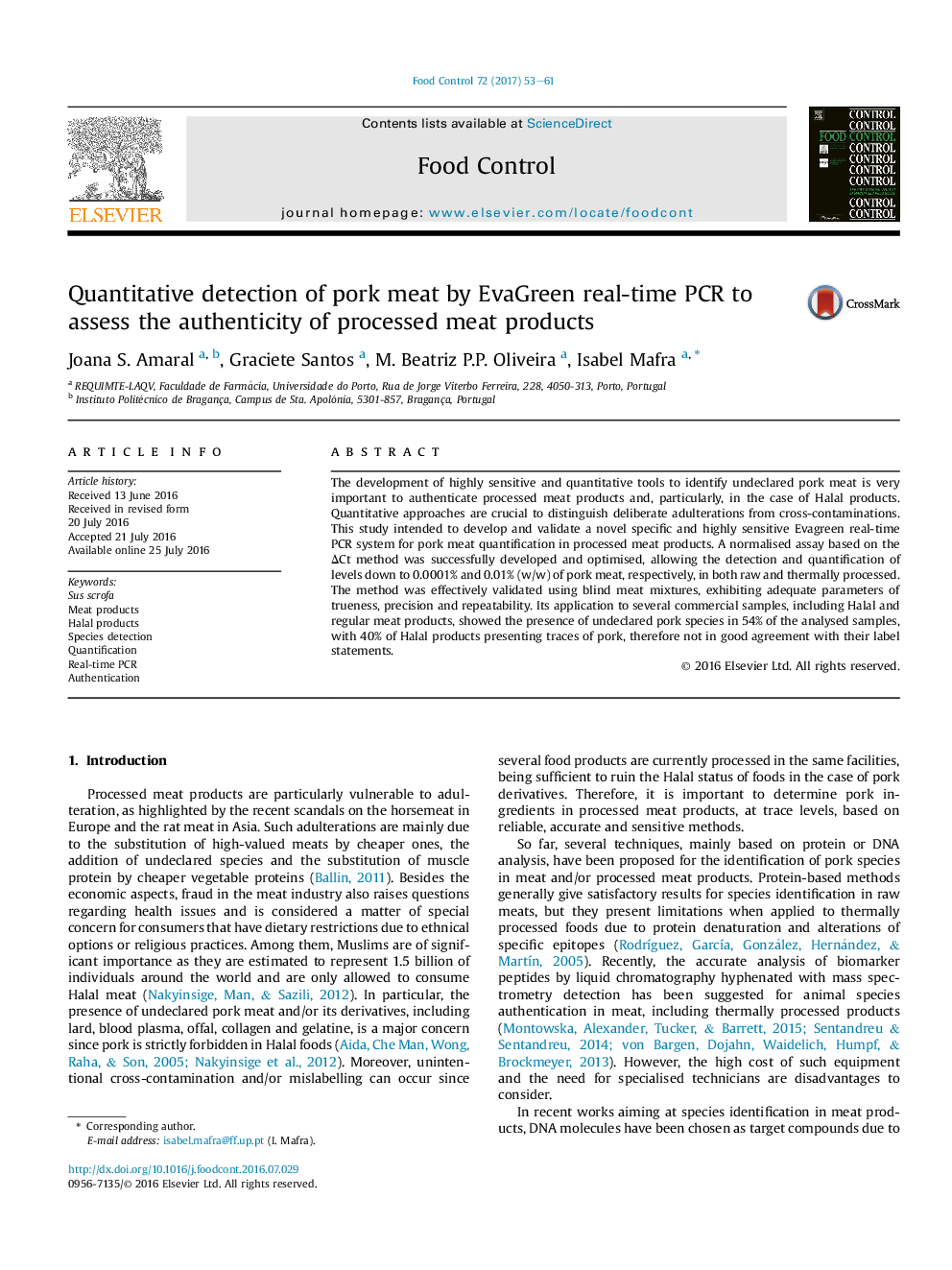| Article ID | Journal | Published Year | Pages | File Type |
|---|---|---|---|---|
| 4558948 | Food Control | 2017 | 9 Pages |
•Highly sensitive and quantitative detection of pork species.•Assays of qualitative PCR and real-time PCR with EvaGreen dye were developed.•Effect of thermal processing on method performance was assessed.•Normalised quantification of pork meat adulteration in the range of 0.01–10% (w/w).•Method validation and application to processed Halal meat products.
The development of highly sensitive and quantitative tools to identify undeclared pork meat is very important to authenticate processed meat products and, particularly, in the case of Halal products. Quantitative approaches are crucial to distinguish deliberate adulterations from cross-contaminations. This study intended to develop and validate a novel specific and highly sensitive Evagreen real-time PCR system for pork meat quantification in processed meat products. A normalised assay based on the ΔCt method was successfully developed and optimised, allowing the detection and quantification of levels down to 0.0001% and 0.01% (w/w) of pork meat, respectively, in both raw and thermally processed. The method was effectively validated using blind meat mixtures, exhibiting adequate parameters of trueness, precision and repeatability. Its application to several commercial samples, including Halal and regular meat products, showed the presence of undeclared pork species in 54% of the analysed samples, with 40% of Halal products presenting traces of pork, therefore not in good agreement with their label statements.
